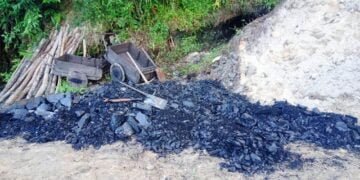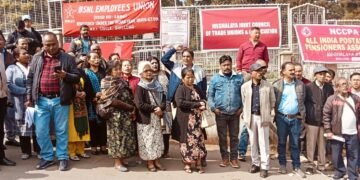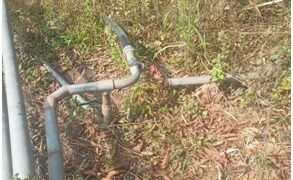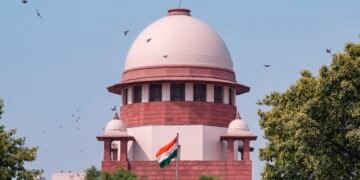Meghalaya is slated to go to polls in February 2023. The ruling MDA partners of NPP, BJP and the UDP had already announced that they are going to contest Assembly elections as separate entities. Amid the poll frenzy, the inter-state border issues, illegal mining, unemployment, alleged scams among other issues likely to dominate the electioneering. Over eight years ago the illegal coal mining, including the more dangerous practice of rat-hole mining banned by the National Green Tribunal after terming it as unscientific and most hazardous, the prohibited activities, however, continues in Meghalaya and other northeastern states despite the Supreme Court and High Court’s series of subsequent directions.
Environmental experts, activists and various NGOs have protested the illegal coal mining, saying that the illegal activities continued with the active support of a section of most powerful politicians while the law enforcing agencies remained silent. To meet their election expenditure and to create their assets, a section of political leaders sponsors the coal mafia and coal traders of both Meghalaya and outside the region to do the illegal trades and activities, destroying the environment and often killing poor people.
Rat-hole mining, an extremely unsafe practice in Meghalaya and other northeastern states, involves digging narrow tunnels, each of which fits only one person to enter and extract coal by poor and young people for their livelihood benefiting the coal traders. The full bench of the Meghalaya High Court led by Chief Justice Sanjib Banerjee strongly criticised the state government on December 7, and said that despite several orders from the Supreme Court, High Court and the NGT, illegal mining of coal continues in the State, with possible ‘state participation and even encouragement’.
The boundary dispute with Assam is also set to dominate the poll campaigns. After the November 22 Assam police firing that killed six people, including five villagers of Meghalaya in Mukroh village of West Jaintia Hills District along the Assam-Meghalaya inter-state border, the much expected talks between the two states were postponed for an indefinite period. The postponement also was caused following the order of the Meghalaya High Court which directed that no physical demarcation or erection of boundary posts in six of the 12 disputed areas for which the March 29 Memorandum of Understanding (MoU) was signed between Meghalaya and Assam shall be carried out “till the next date”.
The MoU was signed after several decades of inter-state border disputes. It was signed in the presence of Union Home Minister Amit Shah by Meghalaya Chief Minister Conrad Sangma and his Assam counterpart Himanta Biswa Sarma on March 29 “resolving” the six of the 12 disputed areas along the two states in the first phase. However, four traditional heads of the Khasi Syiemship and Sirdarship in Meghalaya had filed a writ petition in the High Court seeking a stay of the operation of the MoU signed by the two states. There are 36 disputed villages in the six disputed areas — Tarabari, Hahim, Pilangkata, Khanapara, Ratacheera and Gijang — covering 36.79 square kilometres.

























